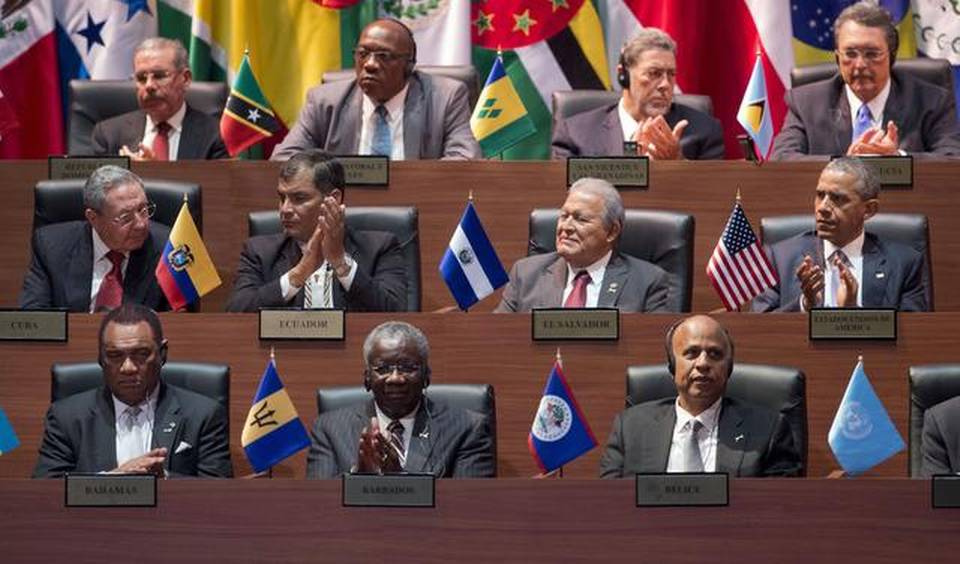
This year the Summit is different
WASHINGTON, D.C. – If the past inevitably was prologue, Western Hemisphere leaders attending the 7th Summit of the Americas in Panama could simply mail (or email) in the predictable results.
The U.S. President would brush aside criticisms of having ignored the region, yet again. He’d lecture the attendees on reducing deficits and trade barriers and raising democratic standards, and pose awkwardly with his counterparts, perhaps in a gaily decorated Guayabera, before rounding up the Secret Service and jumping aboard Air Force One.
This year the Summit is different. It’s not a complete departure from the past, but a welcome break with what has come before.
President Obama entered the Summit Friday morning having created a different context. The United States and Cuba are on the cusp of restoring diplomatic relations. He welcomed the chance to sit with Raul Castro at the table with the rest of our hemisphere’s leaders. His administration has deported two of the most notorious Salvadorans who can now face responsibility for heinous human rights violations during their country’s civil war. He drew the line last fall on Congressional inaction and used his executive authority to reform U.S. immigration policy, and followed up with a significant aid package for the region.
One misstep that should not be minimized is the administration’s decision to slap sanctions on seven Venezuelans, claiming that violations of human rights and the democratic process in their country threatened U.S. national security. At least it provided a useful reminder of the gap that still exists between the region’s adherence to the principle of sovereignty and our country’s belief in the universality of human rights and consequent self-assigned role of enforcer.
Cuba walks on the Summit stage for the first time, not as a sidekick in a unique set of negotiations, but as a regional actor in a complicated and nuanced place itself. Cuba is playing a central role in peace talks which hold the promise this year of settling the civil war between Colombia and the FARC. It joins a Summit largely united behind its greatest ally, Venezuela, and against the United States on the issue of sanctions. But it also finds itself in a region collectively hobbled by a slowing economy and declining prices for oil and natural resources.
For the moment, the Summit is a milestone for Cuba’s diplomacy and Raul Castro’s leadership. Looking forward, however, Cuba must find a place less defined by Cold War hostilities of the past, and more focused on how it can pass along a viable economy to a next generation that is committed to staying on the island and keeping its values relevant and alive. Fist fights on the streets of Panama City over competing definitions of “civil society” are not the way to the future.
There are real issues — compelling and important — on the conference table that need to be considered outside the Cuba-U.S. context. “Prosperity with equity, and the challenge of cooperation in the Americas,” may be a mediocre slogan, but it is a reasonably fair statement of what might bring the North and South together. Summits rarely end with decisive results, but this one could be heading in the right direction.
There is every indication that Cuba will finally come off the U.S. state sponsors of terror list. When this happens, the restoration of diplomatic relations will not be far behind. We can soon count the days before a Cuban raises his country’s flag above his nation’s embassy on 16th Street in Washington, and our country’s flag flutters in the breeze off the Malecón in Havana. These vivid images will illustrate how President Obama’s belief in engagement is being vindicated by results.
Sarah Stephens is the executive director of the Center for Democracy in the Americas.
(From Cuba Central)


